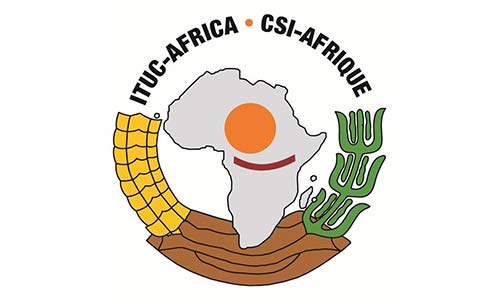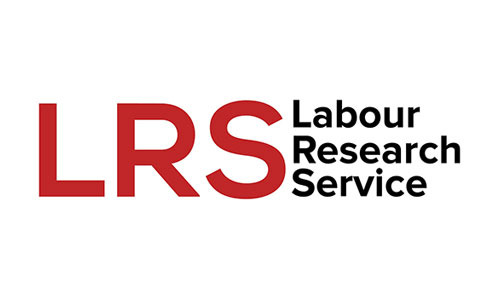The objective of the Protocol on Trade in Goods is to establish a liberalised market in trade in goods in accordance with Article 3 of the African Continental Free Trade Area (AfCFTA) Agreement, through:
- the progressive elimination of non-tariff barriers
- improving the efficiency of customs procedures, trade facilitation and transit
- enhanced cooperation on technical barriers to trade and sanitary and phytosanitary measures.
- development and promotion of regional and continental value chains.
- enhanced socio-economic development, diversification and industrialisation across Africa.
The Protocol on Trade in Goods contains nine annexures:
- Customs Co-Operation and Mutual Administrative Assistance
- Trade Facilitation
- Non-Tariff Barriers
- Technical Barriers to Trade
- Sanitary and Phytosanitary Measures
- Transit
- Trade Remedies
- Tariff Schedules
- Rules of Origin
Negotiations on these annexes have been concluded, apart from Tariff Schedules and Rules of Origin. Trade unions have an opportunity to shape the ongoing negotiations and influence future reviews of the AfCFTA to ensure that labour provisions are included.
Five key annexures for trade union attention in the Protocol on Trade in Goods
The Schedule of Tariff Concessions, Rules of Origin, Non-Tariff Barriers, Sanitary and Phytosanitary Measures and Trade remedies annexures of the AfCFTA Goods Protocol have a significant impact on labour.
Annexure 1: Schedule of Tariff Concessions
The Schedule of Tariff Concessions sets out the terms, conditions and qualifications under which goods may be imported under the AfCFTA.
Tariff or financial barriers increase the cost of bringing in or taking out a product or service. They are known as tariffs and duties and are usually levied by a country’s customs authority.
Each African country has a long list of goods that are traded between countries. Goods are categorised and subcategorised using a Tariff Schedule, which also lists the associated tariffs.
The Harmonised System of Classification is used worldwide to ensure transparency and objectivity. Products are classified according to different levels of aggregation – chapters, headings and sub-headings.
The tariff elimination rules set out in the AfCFTA Agreement are binding on Member States. For example, for various reasons such as food and national security, tax revenue and the protection of local industries and livelihoods, a Member State may classify a product as either sensitive or excluded. Trade unions can monitor the classification process for countries on the AfCFTA E-Tariff Book.
Annexure 2: Rules of Origin
Rules of Origin is the “passport that determines a product’s eligibility for preferential treatment under a trade agreement”. Rules of Origin will set out the criteria by which products can be classified as made in Africa.
The AfCFTA and Rules of Origin
The AfCFTA reflects rules of origin on a product-specific basis, which is an advantage for trade unions seeking to protect workers in particularly vulnerable sectors. The process of product classification is complex. Very few non-agricultural products are manufactured without imported components, which poses a challenge for Rules of Origin. Trade unions need to be familiar with the Rules of Origin process, identify products with potentially significant labour impacts and engage in product classifications with the intention of protecting workers. A good starting point is to understand the difference between wholly obtained goods, substantially transformed goods and products with cumulative status.
Wholly obtained goods – products that have been grown, produced and/or manufactured within a country and therefore consist only of local inputs. Examples include agricultural products, minerals and fish.
Substantially transformed goods – products made from a variety of inputs, some of which are imported. A company must demonstrate that a product with non-originating inputs has been substantially transformed locally to qualify for benefits under the AfCFTA.
Cumulative status – products where the value chain is spread across different AfCFTA member states.
Why Rules of Origin are critical from a labour perspective
In the absence of Rules of Origin, price undercutting can lead to uncompetitive local industries and a decline in labour costs and standards. Rules of origin can also lead to certain sectors and workers being neglected. Trade unions must understand Rules of Origin and how they affect industries.
Rules of Origin are designed to prevent the abuse of trade agreements by foreign companies through the unlawful classification of goods and product dumping. Experts say the success of the AfCFTA hinges on effective rules of origin.
Annexure 5: Non-Tariff Barriers
The Non-Tariff Barriers annexure sets out protocols for the elimination of non-tariff barriers to trade. These may include laws, regulations, policies, restrictions, labelling requirements, business practices of the private sector, and prohibitions.
Non-tariff barriers can be both protective and obstructive. In some cases they protect local businesses, workers and consumers, for example by providing safeguards. On the other hand, barriers such as complicated border crossings drive up the cost of doing business in Africa.
“Many non-tariff barriers are legitimate measures to ensure the security and safety of products, such as regulations regarding packaging and information on dangerous substances like chemicals. Rather than relaxing such regulations, assistance should be given to producers in developing countries to meet such regulations.”
International Trade Union Confederation (Trade Union Guide to Bilaterals)
Now that Annexure 5 of the Goods Protocol is in place, the most important thing will be to monitor implementation and ensure both trade promotion and worker protection.

Annexure 6: Sanitary and Phytosanitary Measures
The Sanitary and Phytosanitary Measures annexure has a direct impact on the health and safety of workers and communities. According to the African Union, a government has an important role in these measures:
“States Parties shall, in responding to market access requests, ensure that their sanitary or phytosanitary measures are based on an assessment, as appro of the circumstances of the risks to human, animal or plant life or health, taking into account, as appropriate, risk assessment techniques developed by relevant international organisations.”
Annexure 9: Trade Remedies
Trade remedies, defined as measures taken to protect domestic industries from damage caused by unfair trade practices or an unforeseen surge in imports, include:
Anti-dumping: The import of products at less than normal value as determined in the ordinary course of trade.
Safeguards: Measures taken against the import of goods in such increased quantities and under such conditions as to cause serious harm to local competitors.
Countervailing: Measures taken to address the unfair advantage given to importers who benefit from domestic subsidies, resulting in unfair competition with domestic producers.
What labour provisions in the Protocol on Trade in Goods should look like
Not all existing trade agreements have labour provisions. Guidelines on how best to integrate labour into trade agreement protocols are still being developed. We have drawn on TRALAC’s Guidelines on Integrating Gender Provisions into the AfCFTA Protocol on Investment to determine what labour provisions in the Protocol on Trade in Goods should look like:
- The Protocol Preamble and Objectives should include language on labour rights, for example: ‘The Protocol on Trade in Goods recognises the importance of the Decent Work Agenda in the development of trade within the AfCFTA’.
- The Protocol should incorporate references to sustainable development and objectives such as the UN Sustainable Development Goals that are directly linked to improved working conditions.
- Labour provisions should be included throughout Protocol on Trade in Goods and not as an annexure or separate section. Examples of wording that can be incorporated include:
- ‘… reaffirm obligations as members of the ILO and commitments under the ILO Declaration of Fundamental Principles and Rights at Work and its Follow-up’
- ‘… it is inappropriate to encourage trade by relaxing laws on domestic labour, public health or safety’
- ‘…provide for high levels of labour and human rights protection’
- Rules of Origin policies should include labour content value requirements. This would ensure that the location, type and remuneration of labour are considered when assessing whether goods qualify under Rules of Origin rules.
*Main photo credit: Kenya Ports Authority
Essential Resource
Trade Unions and Trade: A Guide to the AfCFTA protocol on Trade in Goods
Marie Daniel
Marie Daniel is an Associate at Labour Research Service. Marie has an urban studies and development economics background and one of her research passions is organisation and participation approaches within the informal sector. She is intrigued by the manner in which participatory democracy is approached and implemented in South Africa.





